Send Inquiry
Why Does My Dog Cover His Food with His Blanket?
If you've noticed your dog covering his food with his blanket or other objects, you're probably wondering why they exhibit this behavior. While it may seem strange, this is a common habit among dogs and can be linked to several natural instincts or habits. Understanding why dogs do this can help you ensure they’re comfortable with their environment and diet.
Why Does My Dog Cover His Food with His Blanket?
1. Instinct to Hide or Bury Food
One of the most common reasons dogs cover their food is due to a natural instinct. In the wild, dogs and their ancestors—wolves—would bury excess food to save it for later. This behavior is a survival strategy, protecting their food from being stolen by other animals. Even though your dog gets regular meals, this instinct can still manifest as a way to "hide" their food for later consumption.
2. Protecting Their Food
Some dogs cover their food as a way of guarding it. If your dog feels that their food might be threatened or taken away, they might cover it up to protect it. This can happen in multi-pet households where dogs feel competition for resources. It’s a sign that they’re not fully comfortable or may feel possessive about their meals.
Tip: Ensure your dog has a comfortable, quiet space to eat where they won’t feel the need to guard their food. Providing separate feeding areas for multiple pets can help reduce competition.
3. Not Hungry Right Now
Sometimes, dogs cover their food simply because they’re not hungry at the moment. By covering their bowl, they’re indicating that they want to save the food for later. If this happens regularly, it might be worth considering whether you’re feeding your dog the right amount of food. Some dogs may also prefer smaller, more frequent meals throughout the day rather than one large portion.
4. Marking Territory
Dogs use scent to communicate, and covering their food with a blanket or other items may be a way of marking their territory. By transferring their scent onto the food, they signal that the meal belongs to them. It’s a less obvious way of showing dominance or ownership over their food, even if there’s no immediate competition.
5. Anxiety or Insecurity
Dogs that are anxious or insecure may cover their food as a way of dealing with stress. They might feel unsure about eating or want to hide their food from perceived threats. If your dog exhibits other signs of anxiety, like excessive barking, chewing, or restlessness, it could be related to stress in their environment.
Tip: Creating a calm and predictable feeding routine can help alleviate anxiety. Consider switching to a high-quality dog food like the options offered at MeatyWay to ensure your dog is getting all the nutrients they need, which can also help improve their overall well-being.
6. Playful Behavior
For some dogs, covering their food is just a quirky, playful behavior. They might enjoy the act of covering their food as part of a game. While this behavior is harmless, it can be messy. If you notice your dog doing this in a lighthearted way, it’s likely just a part of their playful nature.
7. Medical Reasons
In some cases, dogs may cover their food due to an underlying medical issue. If your dog frequently hides or avoids their food and seems disinterested in eating, it could be a sign of dental problems, digestive issues, or other health concerns. Always consult with a veterinarian if you notice significant changes in your dog’s eating habits.
How to Respond to This Behavior
If your dog is covering their food with a blanket, it’s important to understand the cause behind the behavior. In most cases, this behavior is harmless and simply linked to natural instincts. However, if it becomes excessive or if your dog shows signs of anxiety or health issues, addressing the root cause is key.
- Provide a Safe Feeding Environment – Ensure your dog feels secure while eating by offering a quiet and private feeding area.
- Feed Appropriate Portions – Make sure you're feeding the right amount of dog food based on your dog’s size, breed, and activity level.
- Monitor Their Health – If covering food is accompanied by a loss of appetite or other signs of illness, consult with a vet to rule out any medical issues.
By understanding your dog’s behavior and providing the right environment and food, you can help them feel more comfortable and secure during mealtime. For nutritious and high-quality dog food options, explore MeatyWay.
